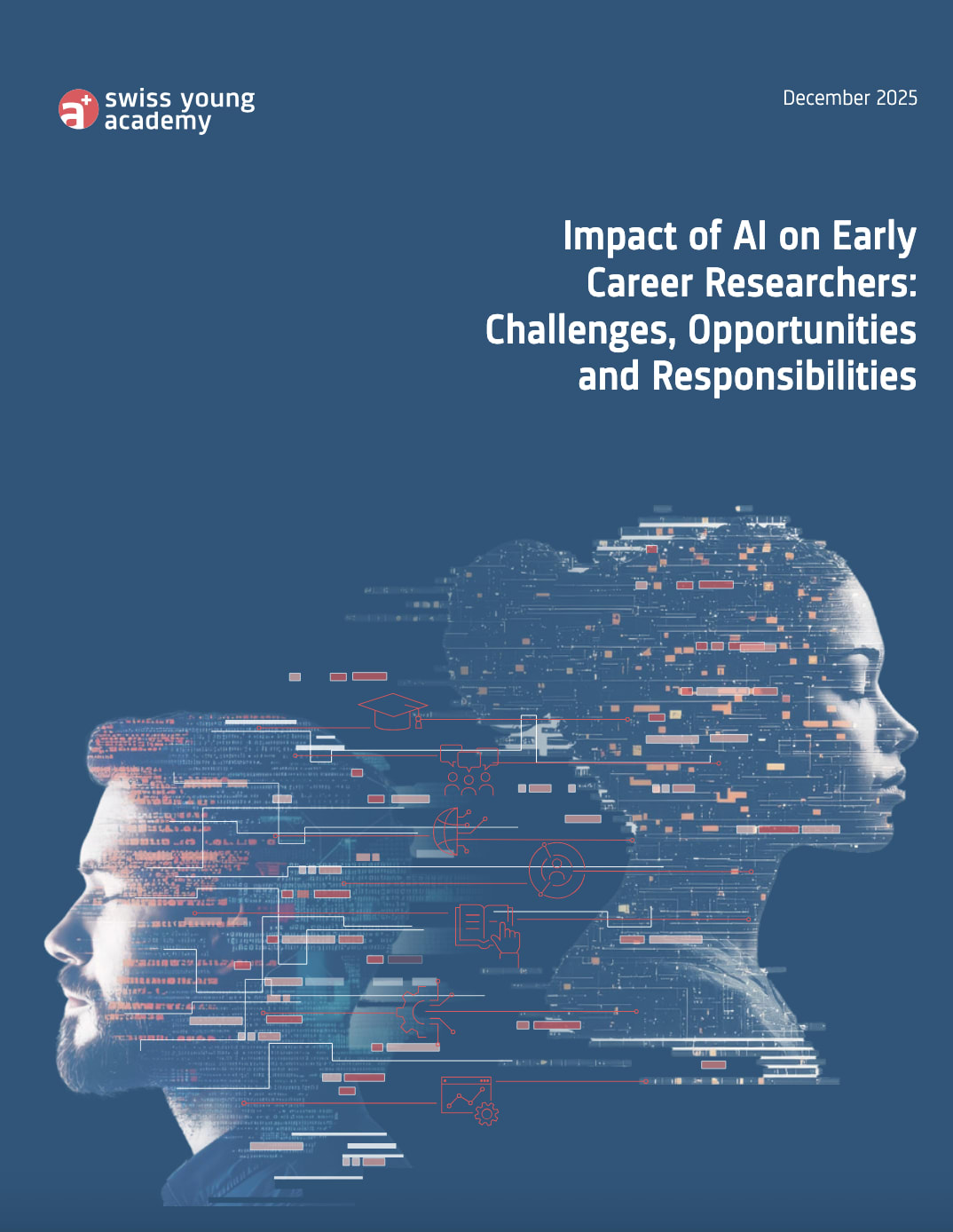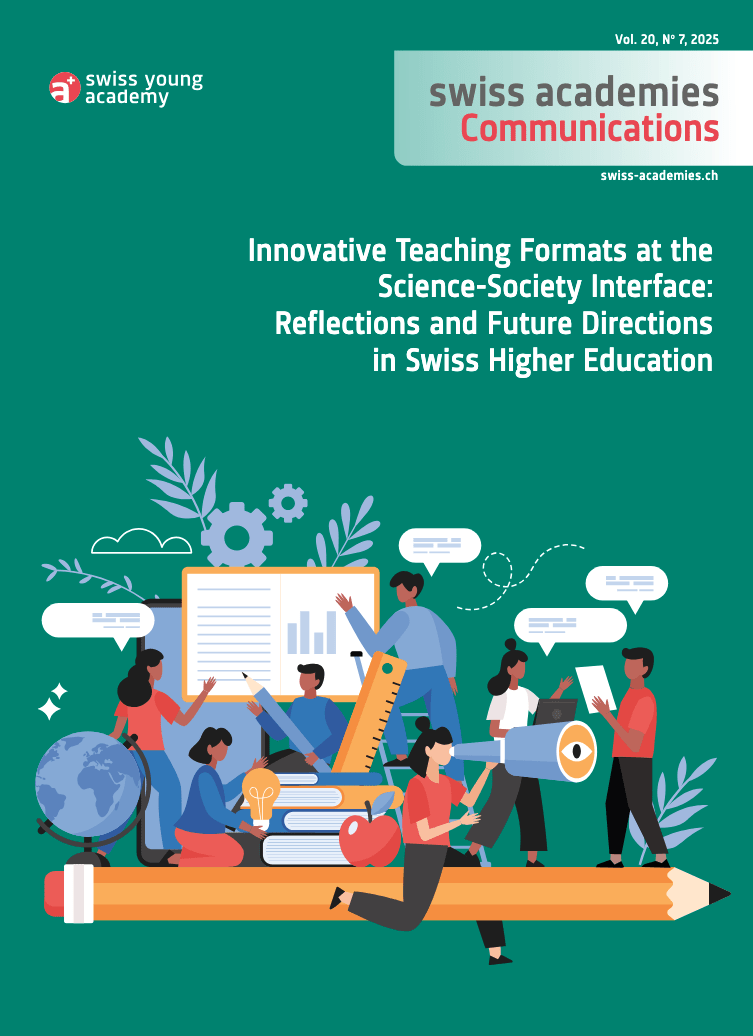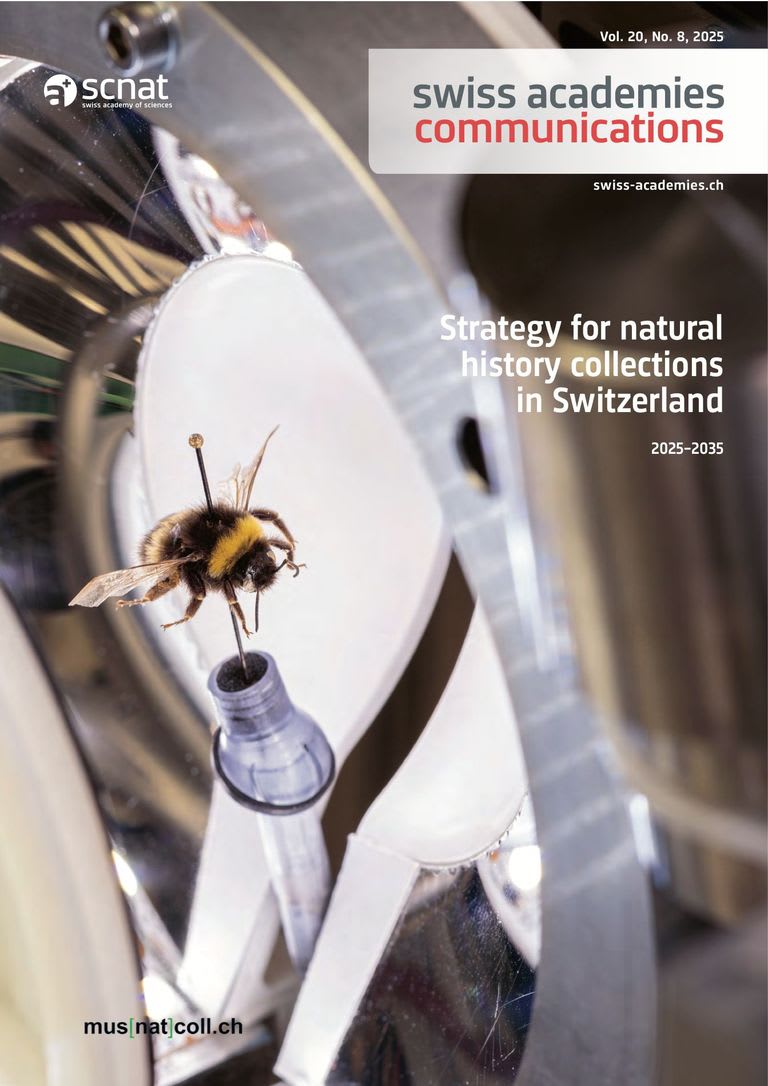Swiss Academies of Arts and Sciences a+
Covid-19 – Science and Society
SWISS ACADEMIES COMMUNICATIONS, VOL. 16. NO 5, 2021
Das Virus verstehen, Todesfälle verhindern, Chaos vermeiden, Fakten aufzeigen und den Boden bereiten für gesellschaftliches Mittragen von Massnahmen – Wissenschaft, Politik und Gesellschaft kamen sich in der Pandemie näher, gleichzeitig kam es auch zu Konfrontationen. Der vorliegende Sammelband vereinigt Analysen und Diskussionsbeiträge, die im Umfeld der Akademien der Wissenschaften Schweiz entstanden sind. Es ist einerseits ein Zeitdokument über die Jahre 2020 bis zum Spätsommer 2021 und bildet eine Periode ab, in der WissenschafterInnen mit grossem Engagement geforscht haben und ihre Erkenntnisse unmittelbar der Gesellschaft zugänglich gemacht haben. Andererseits sind auch Texte entstanden, die vorwärts denken. Was können wir aus der Pandemie lernen? Wie sollte wissenschaftliche Politikberatung funktionieren? Wie können Wissenschaft, Gesellschaft und Politik im Dialog bleiben? Was können wir gegen Fake News tun? Die Publikation gibt Anregungen, diese Fragen weiterzuverfolgen, damit durch Diskussion ein Fundament für die Zukunft entsteht.
Akademien der Wissenschaften Schweiz (2021) Covid-19 – Wissenschaft und Gesellschaft. Beiträge in Zeiten der Pandemie. Swiss Academies Communications 16 (5).




